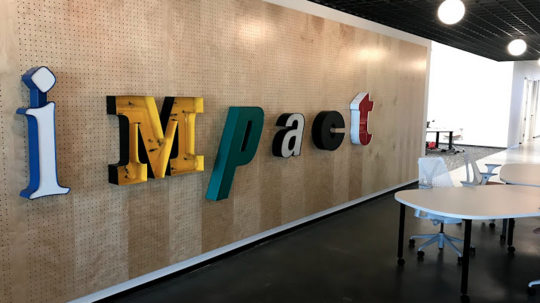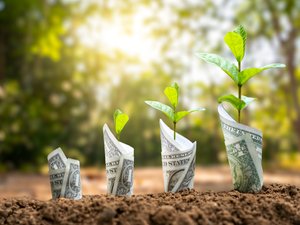
Minnesota's profile as an innovator in social entrepreneurship is on the rise, and others are taking notice.
Last month, Halcyon, a Washington, D.C.-based incubator, ranked the Twin Cities as No. 4 on its list of top ecosystems for impact entrepreneurs. Boston came in at No. 1 with San Francisco and Seattle placing in second and third respectively.
Minneapolis and St. Paul moved up eight spots from the previous year's Halcyon report. The Cities received high marks for quality of life (second overall) and human capital (fourth overall).
Minnesota has produced a handful of notable social enterprise companies in recent years, including Love Your Melon. Co-founders Zachary Quinn and Brian Keller turned a 2012 college entrepreneurship project into one of the fastest-growing companies in the country. Love Your Melon came in at No. 106 on the 2018 Inc. 5000 list, reporting $31.5 million in 2017 revenue while donating 50% of its profits to fighting pediatric cancer.
The local impact enterprise scene also has resources for social entrepreneurs still on the rise. This includes Impact Hub, a coworking space, and Finnovation Lab, an accelerator. There's also Software for Good, Cogent Consulting, Ecotone Analytics and other businesses supporting Minnesota's more than 80 public benefit corporations.
Of course, there's still plenty of room for improvement. Halcyon rated Minneapolis and St. Paul 15th on its list of 20 when it came to funding. And an impact ventures startup has yet to win the grand prize in the Minnesota Cup – one of the state's largest stages for entrepreneurship.
Minne Inno discussed these and other aspects of social entrepreneurship at our Beers With the Beat event this month.
Below are a half-dozen early-stage social impact startups to keep an eye on:
Junita's Jar
Junita Flowers started a cookie company, Junita's Jar, with the hopes of getting people totalk more openly about relationship violence so they can work toward ending it. This year, she launched an event series called Cookies and Conversation, where a panel of experts host a discussion aimed at educating people about the issue. Flowers also participated in the first iteration of the Finnovation Fellowship.
BanQu
BanQu aims to lift people out of extreme poverty by connecting them to global supply chains. BanQu bills itself as both a “for-profit and for-purpose” software business that utilizes blockchain technology to help entrepreneurs and small-business owners across the world. By allowing the unbanked or underbanked interact with the global economy, BanQu helps these individuals develop a credit history and economic identity. Founded in 2015, BanQu has already cemented partnerships with several large international businesses, including Anheuser-Busch InBev, the world’s largest brewing company. In June 2018, BanQu began a pilot program with ABInBev working to connect 2,000 Zambian farmers to BanQu’s mobile platform.
Mossier
Created by a recent graduate from the University of Minnesota, Mossier is a nonprofit social consultancy that works with major corporations to recruit LGBTQ talent. Mossier has worked with more than a dozen companies over the last two years to create LGBTQ-affirming workspaces. This covers things like inclusion training, providing gender-neutral bathrooms and helping those who are transitioning with workplace needs. Mossier works with non-governmental organizations to reinvest its profits from consulting gigs back into international LGBT-owned companies.
We Sparkle
We Sparkle is a social enterprise platform that uses AI-powered software to help small businesses care for both their customers and their communities. The company places a special focus on helping businesses owned by women of color. Founder and CEO Michelle Maryns was part of the first Finnovation Fellowship and recently joined BETA's latest cohort. We Sparkle won the Impact Ventures division of the 2019 Minnesota Cup, securing $30,000 in funding.
Footprint Project
Footprint Project sees natural disasters as an opportunity to build back greener. Created by a group of philanthropy, humanitarian and human rights veterans, this local organization deploys to disaster zones and low-resource communities around the world to provide relief and recovery services. Footprint helps these places rebuild with clean energy technologies like renewable microgrids, water filtration and safe shelters.
Molly Fuller Design
Molly Fuller Design aims to make clothing and products for specific medical conditions that look and feel less medical. Fuller combined her backgrounds in fashion design and healthcare to create the company's first product line called the Charlie Shirt – a clothing item intended for those with autism spectrum disorder and sensory disorder. It is made out of soft and stretchy materials that add substantial compression while not irritating the skin. The seams and stitching are also designed to feel invisible to the wearer. Molly Fuller Design received second place in the Impact Division of this year's Minnesota Cup.








